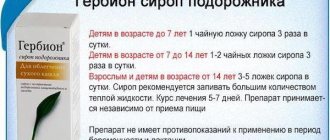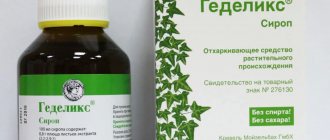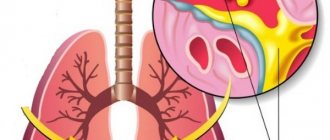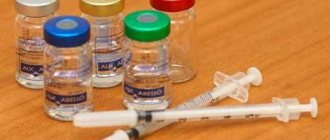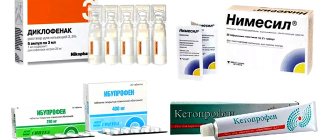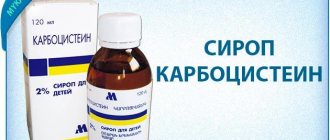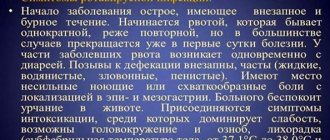What to buy for a cough? Have you ever asked a pharmacy employee this question? Did you know that questions like these confuse them?
The fact is that the range of drugs aimed at combating cough is very diverse. In the arsenal of pharmacists there are drugs in different dosage forms that differ in their principle of action. Cough and cough are different, because this symptom accompanies many diseases that have different origins. Therefore, before ordering medication, it is important to find out how to properly treat a cough specifically in your case.
Figure 1 - How to properly treat a cough?
How to choose an effective and strong cough medicine for adults?
A dry cough is unproductive, unlike a wet one, since it does not lead to a person’s recovery. This symptom only increases discomfort and can lead to other unpleasant consequences. With increased viscosity of sputum in the respiratory organs, it is impossible to cough it up and a dry cough provokes irritation in the throat.
Herbal medicines with a mucolytic effect help alleviate the general condition of the patient and transform a dry cough into a wet one. This reduces the viscosity of sputum and expectorants can be added to treatment to speed up its elimination.
What is the best medicine for dry cough?
The choice of drug primarily depends on the nature of the cough and should be agreed with the doctor:
- The cough is dry, painful, painful, unproductive, frequent, leading to disturbances in appetite and sleep; the choice is antitussives or combination drugs .
- Productive cough, but with difficult to separate, thick, viscous sputum, the choice is mucolytic drugs.
- The cough is productive, with sputum, and it is not viscous or thick - expectorant cough medicines are the choice.
- Mucolytic agents should not be used simultaneously with antitussive drugs.
Antitussives for the treatment of dry cough
Centrally acting antitussives reduce the sensitivity of receptors in the mucous membrane of the respiratory system and suppress the cough reflex.
Drugs of this type exhibit the following effects:
- bronchodilator;
- secretolytic;
- anti-inflammatory.
Antitussive drugs are divided into 2 types:
- central action (narcotic and non-narcotic);
- peripheral action (local anesthetic or mixed action).
Medicine for dry cough in adults, containing narcotic substances, acts specifically on the cough and respiratory centers of the brain, is addictive and has a lot of side effects.
Non-narcotic cough suppressants are gentler, do not impair breathing and do not affect the functioning of the digestive system. Anesthetic substances reduce pain by blocking nerve impulses and reducing tissue sensitivity to irritation.
Reasons for appearance
Before taking pills, you need to understand the possible reasons for its appearance:
1
Irritation of the mucous membrane by infectious agents (viruses, fungi, bacteria). Most often, a dry cough is a symptom of laryngitis, acute bronchitis and tracheitis, which also causes a sore throat. In some cases, the cough becomes productive.
2
Chronic diseases of the bronchi and lungs (a form of bronchial asthma, chronic obstructive bronchitis, congenital emphysema, etc.).
In this case, an unproductive or unproductive cough is a constant symptom, which intensifies in case of exacerbation of the disease.
3
Chronic pathology of the heart and digestive tract (left ventricular heart failure, gastroesophageal reflux disease). Dry periodic cough is a pathognomonic, but not a specific sign of the listed diseases.
4
In addition to infectious pathology, a dry cough in a child can occur due to aspiration of a foreign body. A sudden obstruction (usually against the background of complete well-being), asymmetry of wheezing will confirm this.
5
Girls of puberty or with a history of psychological problems often develop a cough of psychogenic origin. The symptom may appear due to a tumor process in the bronchi or long-term use of angiotensin-converting enzyme inhibitors.
Thus, the most common causes of a non-productive cough reflex are respiratory infections, gastric reflux, anomalies of the bronchopulmonary system, heart failure and bronchial asthma.
For rinsing
Gargling for diseases of the respiratory system is necessary to relieve irritation on the tonsils and stop the spread of infection.
For this procedure, antiseptic agents, herbal and saline solutions are effectively used. Gargling helps relieve dry and sore throat.
Causes
Attacks of dry cough can occur in various pathologies and are considered by experts as a symptom accompanying the pathology. The following internal and external factors can also provoke reflex muscle contraction:
- bacterial or viral infection of the respiratory tract;
- allergic reactions of the body;
- entry of foreign bodies into the nasopharynx;
- smoking;
- being in a smoky room.
If a person develops a dry cough due to an allergy, medications included in the antihistamine group should be prescribed to him by a specialist. This is due to the fact that self-administration of medications can lead to the development of serious complications. In cases where reflex contractions are a consequence of a viral or bacterial infection of the lungs, patients are prescribed mucolytic drugs.
Inhalation products
Inhalation is the inhalation of medicinal substances in a gaseous state. This therapeutic procedure well moisturizes the mucous membranes of the respiratory tract, providing a resorptive effect. Inhalations can be carried out using an inhaler, nebulizer or at home.
Types of inhalations:
- steam;
- dry;
- wet;
- ionic.
The following solutions are used in the nebulizer:
- antiseptic (Furacilin);
- anesthetic (lidocaine);
- mucolytic (Fluimucin);
- phytotherapeutic (Chlorophyllipt).
Using inhalation, medications cover a large area of the respiratory tract, delivering the active substance to the site of inflammation. When performing the procedure at home, it is important to use boiled water at 30-40 degrees.
Inhalation duration is up to 10 minutes. Salt and herbal solutions and essential oils are most effective. The moisturizing and reparative effect helps to cope with the disease and get rid of the sore throat.
Expectorant herbal remedies
In the treatment of pathologies of the respiratory system, the administration of herbal expectorants for wet coughs plays an important role. The following herbal mucolytic agents are suitable for children and adults:
- Gedelix
- Bronchophyte
- Liquorice root
- Alteyka
- Pertussin
- Gerbion et al.
They do not have an addictive or harmful effect on the body compared to synthetic analogues.
Bronchophyte
A drug in the form of a collection or tincture based on herbal plants and medicinal ingredients. Country of origin: Russia. The composition is based on the following herbs:
- marshmallow;
- calamus;
- linden;
- elderberries;
- mint;
- chamomile;
- licorice;
- thyme;
- sage, etc.
The release form of the drug (collection) is presented in the form of crushed medicinal raw materials. The natural remedy has a pronounced anti-inflammatory, antiseptic, regenerating, expectorant, bactericidal, antispasmodic and immunomodulatory effect. The active substances of licorice, marshmallow and thyme determine the pharmacological mucolytic effect of the drug.
Liquorice root
An effective expectorant against bronchitis, tracheitis, laryngitis, laryngotracheitis, pneumonia, bronchial asthma, and other infectious diseases of the respiratory tract, the accompanying symptom of which is cough.
The active ingredient in licorice has the following effects:
- emollient;
- mucolytic;
- corticosteroid;
- anti-inflammatory;
- regenerating;
- immunomodulatory.
The drug leads to the dilution of thick and viscous secretions, the removal of paroxysmal dry cough symptoms, and the improvement of airway clearance.
Gerbion
A natural remedy in syrup form, prescribed for wet coughs in adults and children. Indications for use are dry, unproductive cough and sore throat. If there is no sputum, the drug softens the mucous membranes of the respiratory tract and reduces irritation. If the symptom is productive, syrup improves liquefaction and accelerates the removal of mucus.
Herbion based on plantain extracts has a general strengthening and immunomodulatory effect.
Pertussin
Mucolytic on a natural (thyme extract) and synthetic basis (potassium bromide). Creeping thyme (thyme) has a pronounced expectorant effect. Thanks to this, the production of substances that reduce the viscosity of sputum is accelerated in the upper respiratory tract. The synthetic component has a calming effect on the nervous system.
Activation of the ciliated epithelium releases pathogenic mucus from the lungs and bronchi into the trachea and larynx. How to cough up phlegm correctly? Contractions of the muscle tissue of the bronchioles during coughing lead to the release and speedy recovery of the patient. To heal quickly, it is important to cough as often as possible and at the same time try to remove the mucus.
A dry cough of infectious origin is a common and at the same time dangerous symptom. When neglected, it leads to a complicated course of the disease. To avoid inflammation of the mucous membranes of the lower and upper respiratory organs, it is important to seek medical help in time and begin comprehensive treatment.
Antitussives and expectorants for dry coughs
After you have succeeded in causing mucus to leave the lungs, you can take expectorants. Mixed-action medications help reduce the cough reflex and remove viscous secretions from the respiratory organs. It is important to know that you should not use wet cough remedies for a dry cough, as this may aggravate the course of the disease.
When you cough, the body itself tries to get rid of infections, speeding up recovery. To enhance mucus production, it is recommended to take expectorant cough syrups.
Cough expectorants are:
- resorptive (thin the exudate, reduce inflammation);
- reflex (intensify expectoration).
Preparations of the first type are produced in the form of tablets and syrups, the second type - in the form of extracts and herbal complexes.
Sinekod
Sinekod is a non-narcotic antitussive drug acting on the central nervous system. The active substance is phenylbutyric acid ethyl ester. The product combines antitussive, anti-inflammatory, bronchodilator and expectorant properties.
This drug should not be taken simultaneously with other expectorants. Dosage for adults: 15 ml 4 times a day before meals. You can be treated with Sinekod for a week. Sinekod drops are a bronchodilator that reduces the resistance of the respiratory system to irritants.
Gerbion
The medicine Gerbion is aimed at treating dry cough in adults by moisturizing and relieving irritation of the mucous membrane of the throat. Plant extracts of plantain and mallow in combination with ascorbic acid have an immunostimulating and regenerative effect.
Herbion with plantain is an effective cure for dry cough for adults
The remedy is indicated for dry cough caused by infectious and inflammatory diseases. The medicine envelops the mucous membrane, destroying foci of infection. Method of administration: 10 ml 3-5 times a day. The duration of therapy is no more than 7 days.
Codelac Phyto
Elixir Codelac Phyto is a mixed-action cough suppressant. The active ingredient is opium alkaloid, the excipients are herbal extracts.
Directions of action of the elixir:
- increased secretion of secretions from the bronchi;
- decreased cough reflex;
- improvement of the properties of the respiratory tract epithelium;
- removal of foci of inflammation.
Codelac Phyto should be taken 5-10 ml 2-3 times a day in between meals, taking into account that the maximum daily dose is 20 ml. The course of treatment lasts 4-5 days.
Stoptussin
Stoptussin syrup has a mucolytic and expectorant effect. Guaifenesin in the composition gives a bronchodilator effect, stimulating the secretion of secretions. The drug stops attacks of irritating cough without exerting an inhibitory effect on the nervous system.
The optimal dose for an adult: 30-40 drops three times a day after meals. It is advisable to dilute the syrup with a small amount of water. Duration of treatment – 7 days.
Bronchicum
Elixir Bronchicum is known as a stimulant of the motor function of the respiratory system. This herbal remedy contains extracts of medicinal herbs and flowers.
The complex of active substances thins mucus in the bronchi and promotes their removal. The elixir should be drunk a teaspoon 5-6 times a day. The product can be used to treat dry and wet cough.
Bronholitin
Broncholitin syrup contains a plant alkaloid that has a bronchodilator and bactericidal effect. This improves mucus separation, enhances bronchiole peristalsis, and reduces the intensity of an irritating cough. Bronholitin should be taken after meals, 10 ml 3 times a day. The last appointment must be no later than 16:00. The course of treatment lasts 1 week.
Libexin
Libexin tablets have an anesthetic and bronchodilator effect. This antitussive reduces irritation of the throat mucosa, transforming a dry cough into a wet one. You should take one tablet 3-4 times a day. The maximum dose can be 800 mg per day (for severe forms of the disease).
Linkas
Linkas plant syrup, in addition to being anti-inflammatory and expectorant, is known for its antipyretic effect. The combination of medicinal herbal extracts acts specifically against foci of inflammation and thins mucus.
The complex activity of the drug helps reduce the symptoms of the disease within a couple of days. You should consume 1 teaspoon of syrup 3-4 times a day for a week.
Classification of antitussives
A cough expectorant reduces the viscosity of mucus in the bronchi. When the airways become inflamed, secretions accumulate. The mucus stagnates and becomes difficult to remove. Impaired breathing is accompanied by irritation of the respiratory tract. The body’s reaction in this case is a cough against a background of thick and viscous sputum.
To avoid the development of serious pathologies (bronchitis, pneumonia, etc.), it is important to consult a specialist in time. The doctor will listen to complaints, check the lungs, the condition of the throat and nose, and refer you for tests. To reduce the density and viscosity of mucus, the patient will be prescribed an expectorant. Do not self-medicate! Incorrectly selected medications can lead to aggravation of the situation.
In medical practice, all cough remedies for adults and children are prescribed depending on the nature of the cough symptom. In accordance with this, medications are classified into several main groups:
- Antitussive medications. They are used if the cough is unproductive and dry. The symptom is accompanied by sleep and appetite disorders.
- Expectorants. Prescribed to adults and children to stimulate the process of sputum discharge and make the cough productive. After using syrup or tablets of this group, the disease enters the stage of producing mucus that is not too viscous and thick.
- Mucolytics. Indication for use is a productive cough with a large amount of viscous and thick mucus. Medicines are prescribed for its better release from the bronchi.
Cough expectorants are divided into secretomotor and secretolytic drugs. Their differentiation is based on the principle of action of medications.
Secretomotor drugs
They have a reflex action. It consists of irritating the nerve endings (cough center) located in the brain. It is also activated as a result of reflex action. As a result, there is increased production of mucus in the bronchi. It is difficult for people who cough heavily to suppress the paroxysmal symptom. The use of a secretomotor drug often causes a gag reflex. This is due to the fact that the cough and vomiting centers are located in close proximity to each other (medulla oblongata).
Medicines in this group include herbal products. Extracts of licorice root, essential oils (for example, eucalyptus), wild rosemary, and thyme have an expectorant effect. You can prepare syrup for expectoration for dry and wet coughs yourself. If this is not possible, age-appropriate medication is purchased at the pharmacy in accordance with the recommendations of the therapist or pediatrician.
Secretolytic drugs
They have a direct resorptive effect. It consists in increasing the secretion of mucus after irritation of the bronchial membranes. The active substances of the drug are absorbed by the gastric mucosa, and then spread throughout the body and affect the respiratory system.
On this topic:
How to choose the right dry cough syrup for your child
A good, effective expectorant is selected individually according to the recommendations of a specialist. In this case, the form and nature of the disease are taken into account.
Children and pregnant women should take expectorant medications with extreme caution. When using medications, accompanying symptoms often occur - tearing and runny nose.
To avoid the allergic component, as well as relieve swelling, the patient is prescribed antihistamines. Also prescribed:
- nasal drops (for inflammation of the paranasal sinuses);
- antipyretics (in case of increased body temperature);
- immunostimulants (the patient’s body is exhausted, so a drug is taken that increases the production of interferons);
- antibacterial or antiviral compounds (for infections of the upper and lower respiratory tract);
- physiotherapy (inhalation with saline solution). They are indicated for asthma and pneumonia, bronchitis, tracheitis, laryngitis. With the help of a nebulizer, it is possible to alleviate the patient's condition. The procedures allow the mucus to swell and be released from the bronchi.
Cough medicines in this group are represented by drugs based on ammonium chloride, potassium, sodium iodide, sodium bicarbonate. They are taken at the stage of sputum production, when they are not completely viscous and thick.
Cough suppressants in adults
If an intense paroxysmal cough is left untreated for a long period, it can lead to serious complications. In turn, pulmonary emphysema may develop, intrathoracic and general pressure may increase. Therefore, dry cough must be suppressed in the initial stages of its development.
The alkaloid drug Glaucine effectively eliminates muscle spasms by acting on the cough center. Oxeladin capsules reduce the sensitivity of respiratory tract receptors, blocking coughing attacks. Falimint lozenges reduce sore throat and inflammation.
How to treat dry cough in children
It is especially difficult for children to bear it. Frequent, prolonged attacks, worse at night, can torment any child. Sick children lose sleep and refuse to eat. As a rule, a common cold or viral infection is to blame. The temperature rises, the throat begins to hurt, the nose runs, and these symptoms are completed with a dry cough. To get rid of it, there are effective, safe and inexpensive medications.
However, the famous Dr. E.O. Komarovsky warns: antitussive drugs should be used in extreme cases. First you need to help the child’s body so that it itself begins to actively fight the disease. To do this, the pediatrician recommends:
- Rinse your child’s nose with saline solution more often;
- give warm alkaline mineral water to drink without gas, or even better - milk with honey (if tolerated);
- apply warm one-and-a-half-hour compresses to your back using mashed potatoes with mustard and vodka;
- brew breast infusions of medicinal herbs.
If after 5-6 days the cough that irritates the throat does not go away, you can choose one of the drugs that are safer for children:
- Mukaltin;
- Lazolvan;
- Bromhexine.
Cough medicine medicines, dry cough, cough medicine for children
Mucus removers
Medicine for dry cough in adults should have an expectorant effect. Mucolytic drugs most often contain cysteine. This substance helps remove mucus from the bronchi. Pathogenetic treatment causes a decrease in signs of inflammation, cleansing of the bronchi, restoration of airway patency, and expectoration of sputum.
It is worth remembering that expectorants should not be used if you have a wet cough or a tendency to allergies.
When taking mucolytics, you should drink more warm liquid (water or tea) to speed up the expectoration process.
Types and classification of drugs
If a complaint such as a dry cough appears, medications are prescribed only by a doctor after a full interview and examination, and, if necessary, after a set of diagnostic measures.
List of medications used for barking, dry and paroxysmal coughs of various natures:
- Antitussives with a central mechanism of action of narcotic and non-narcotic effects. These include Codeine (has the following commercial names: Codelac, Codipront, Codelac Neo, Terpinkod, Caffetin), Demorphan, Vicodin, Glaucin, Sedotussin, Sinekod.
- Drugs with peripheral effects: Libexin, Gelicidin, Levopront.
- Combined action: Bronholitin, Stoptussin, Lorraine, Tussin plus, Hexapneumin, Erespal, Ascoril, Prothiazin.
- Mucolytics and mucokinetics are used for dry cough much less frequently, provided there is thick and difficult to separate sputum - in order to stimulate its discharge (Thermopsis, Althea Syrup, Mucaltin, Bromhexine, ACC, Lazolvan, or Ambroxol).
Medications with a central mechanism of action inhibit opioid receptors, which are mainly located in the medulla oblongata, especially in the cough center.
This leads to suppression of the cough reflex. Non-opioid drugs affect slightly different structures in the brain, but are less effective.
Despite the fact that Codeine and its derivatives are the most powerful and best medicine for severe dry cough, doctors use it extremely rarely and only in short courses
due to the presence of a large number of adverse reactions.
The most well-known undesirable effect after using drugs is addiction, which is quite difficult to get rid of.
Syrups and tablets with peripheral effects reduce the activity and sensitivity of receptors located deep in the mucous membrane of the trachea and bronchi. As a result, the frequency of cough impulses and their severity are reduced.
Due to their complex composition, combined medications have several beneficial effects (except antitussive).
For example, Erespal syrup is able to expand previously narrowed bronchi, and Broncholitin also has an anti-inflammatory effect on the bronchopulmonary system.
Their use is especially justified in the case of allergic inflammation in bronchial asthma or obstructive bronchitis. Source: nasmorkam.net Expectorants are extremely rarely used for non-productive coughs, since their main point of application is the accumulation of sputum in the bronchi, which, with a non-productive symptom, has not yet been produced or is absent altogether.
However, with nasal tracheitis, which occurs in attacks, mucolytic and mucokinetic syrups help well.
They soften and relieve the mucous membrane from excessive irritation by infectious agents, stimulate the production of sputum, and subsequently its discharge.
Precautionary measures
Even considering that all the drugs have undergone clinical trials, have proven their effectiveness, and many of them consist of natural herbal ingredients, they should only be used as prescribed by a doctor.
Remember
Unreasonable and uncontrolled use may cause a serious adverse reaction or complication.
For example, Codeine is prescribed only in severe cases in a short course, particularly in adults.
Any antitussive drugs with a central or peripheral mechanism are indicated only during the period of non-productive cough.
Otherwise (if there is sputum in the lungs), they will inhibit its discharge, contributing to the progression of the infection.
The list of drugs approved for use in pediatrics is quite limited due to the lack of clinical trials on children, which are prohibited by law.
At the same time, irrational or incorrect prescription of even an approved medication to a one-year-old child can lead to serious consequences.
This is due to the morphofunctional immaturity of the bronchopulmonary system in children, as well as their high sensitivity to any chemicals.
Therefore, only a medical specialist decides what medicine to take for this or that type of cough.
To help parents: Cough from snot in a child: how to treat it? Child coughs in his sleep
Is it possible to walk with a child with a runny nose and cough? Answers on questions
Ready-made herbal preparations for adults
At the pharmacy you can buy special teas for the treatment of dry cough, for example, Chest Tea.
The main components of treatment fees:
- marshmallow;
- coltsfoot;
- plantain;
- chamomile;
- primrose;
- wild rosemary;
- oregano
Also, teas can contain the roots and fruits of various plants: black currant, licorice, elecampane.
Natural herbs have antimicrobial and anti-inflammatory functions without causing side effects. The tea acts more slowly than synthetic drugs, so it can be used longer.
Rating of the best drugs for wet cough
| Rating | #1 | #2 | #3 |
| Name | Renaissance.Tusstart | Ambroxol | ACC |
Renaissance.Tusstart
A complex of plant extracts and “Vitamin C” to improve sputum discharge.
pros
- Improves sputum discharge during productive cough
- Improves the condition of the respiratory tract
- Contains Vitamin C and natural extracts: thyme, coltsfoot, plantain, elecampane roots, ivy leaves, basil, turmeric, ginger, licorice root, long pepper, albizia lebbeck flowers and eucalyptus oil
- Has a natural pleasant eucalyptus flavor
Minuses
- Has contraindications
- Not available for sale in all regions
To learn more
Gerbion
Produced in the form of syrup. Contains thyme and primrose extract.
Designed to treat wet coughs with thick sputum. Has an expectorant, restorative effect.
Makes breathing easier and relieves irritation of the mucous membrane. Prescribed for the treatment of tracheobronchitis, pharyngitis, acute respiratory infections, obstructive bronchitis and irritating cough.
Suitable for children from 2 years old.
pros
- Convenient release form.
- Contains only safe ingredients.
- The syrup has a mild but at the same time effective effect.
- Does not contain alcohol.
- Does not affect the central nervous system.
Minuses
- Not suitable for people with individual intolerance and diabetes.
- Nausea, vomiting, and diarrhea may occur.
Ambroxol
The active substance has been used for many centuries in eastern countries as a mucolytic. Has a combined effect.
Reduces bronchospasm, restores the structure of sputum. Thus, it prevents stagnation.
Provides anti-edematous and anti-inflammatory effect. Capable of increasing local immunity.
pros
- Well absorbed in the gastrointestinal tract.
- Quickly removes mucus.
- Loyal price.
- Makes breathing easier.
- Prevents the development of chronic bronchitis.
Minuses
- There are contraindications.
- The syrup tastes too sweet.
Mukaltin
The drug appeared on the pharmacological market many years ago. Contains a natural component – marshmallow extract.
It also contains sodium bicarbonate, calcium stearate and tartaric acid. Produced in the form of flat, round tablets.
Helps restore damaged mucous membranes. Facilitates expectoration and softens plaque during the inflammatory process.
Promotes rapid removal of phlegm from the body, makes breathing easier.
pros
- Low price.
- Efficiency proven over the years.
- Rarely causes an allergic reaction, even in patients with a history of nonspecific reactions.
- Lack of complex chemical components.
- Pleasant taste.
- Dissolves in water.
Minuses
- The acid can irritate the stomach walls.
- There are contraindications.
ACC
The abbreviated name of the drug stands for “Acetylcesteine”. Designed for inhalation, oral administration and injection.
Prescribed for both children and adults. Can cure acute and chronic forms of bronchitis.
Also suitable for cystic fibrosis, bronchial asthma and other diseases associated with increased viscosity of sputum. This is very easy to determine.
Coughing causes pain. "ACC" is prescribed for injection (intravenous and intramuscular).
For breathing problems and hereditary lung disease, the drug is administered parenterally. Acetylcysteine thins mucus and improves coughing.
For oral administration, simply dilute the contents of the sachet in hot water.
pros
- Effectively and quickly liquefies.
- Delicious.
- Virtually no side effects.
- Convenient to use.
- Reasonable price.
Minuses
- Should be taken after meals.
- Contraindications.
- Do not use during pregnancy and lactation.
Lazolvan
The original drug is suitable for the treatment of chronic as well as acute diseases of the upper and lower respiratory tract. Prescribed to children.
Use by newborns and during pregnancy is allowed - only in the second and third trimester. But in these categories of patients, treatment must be carried out under supervision.
It has a mucolytic and mucoregulatory effect. Produced in the form of children's syrup, tablets, lozenges, as well as a solution for inhalation.
It also stimulates the production of a protective component.
pros
- Liquefies mucus. Promotes rapid and painless removal from the bronchi.
- Several release forms.
- There are practically no contraindications.
- It begins to act the next day after administration.
- Easy to use.
- The set includes a measuring cup.
- Does not contain sugar.
Minuses
- High cost compared to analogues.
- Bitter aftertaste.
- There is a possibility of an allergic reaction.
- It is not advisable to use before bedtime.
Antibiotics for cough. How is the drug selected?
Antibiotics for coughs are prescribed if bacterial flora is present. To choose an effective antibiotic, you need to take a flora test. Otherwise, you need to give preference to drugs with a wide range of action. If the cough is caused by a virus, taking antibiotics will be pointless.
For coughs, the following types of antibacterial agents are recommended:
- penicillins;
- macrolides;
- cephalosporins.
To find out what type of antibiotic will help cope with the disease, it is advisable to take a smear for bacterial culture.
What can pregnant women do for a cough?
During the period of bearing a child, it is worth trying medicinal lozenges Halls, Strepsils, Carmolis, but they do not help everyone. For dry cough during the first trimester of pregnancy, mainly herbal preparations are used:
- Marshmallow root syrup;
- Eucabalus;
- Mukaltin.
In the second and third trimesters, in addition to these antitussives, the following medications are recommended for dry cough:
- Bronchiprest, Stodal (there is a risk of allergic reactions);
- Bronchicum, Gedelix (the effect on the fetus has not been thoroughly studied);
- Coldrex Knight (only at temperatures above 38 degrees);
- Bromhexine, Libexin, Stoptussin (provided there is an urgent need).
Penicillins: list of drugs
Medicine for dry cough in adults can be selected depending on the cause of the disease. In acute cases of the disease and the presence of an infectious component, medications containing penicillin are prescribed.
In most cases, this substance can cure any respiratory tract infection in 5 days. The downside is the side effects in the digestive system.
Common medications with the active substance penicillin:
- Amoxicillin;
- Flemoxin;
- Augmentin;
- Ecoclave;
- Amoxiclav.
Drugs in this series cause allergies more often than others, but are low-toxic.
What else do you need to know to understand which cough tablets help better?
Before prescribing Lazolvan or ACC to a patient, the doctor studies the characteristics of the cough. And it can be dry, barking, hysterical, silent, etc. - and all this speaks of different diseases. In one case there is an injury to the vocal cords (silent or hoarse cough), in another - about obstructive bronchitis (dull cough), in the third - about inflammation (a "barking" cough).
Let us briefly list the most pronounced characteristics that an ordinary person without special education can distinguish:
- The cough is dry and wet (dry can turn into wet).
| Dry | Wet |
| A dry cough is not accompanied by expectoration or mucus production. This symptom manifests itself in inflammatory diseases of the bronchi, larynx and trachea, pleurisy, as well as in the initial stages of acute viral infections and allergies. People suffering from heart disease (including heart disease), as well as patients diagnosed with nervous diseases (psychogenic cough that occurs after stress, etc.) also complain of a dry cough. Medicines are prescribed depending on the characteristics of the disease (usually antitussive sedatives). | With such a cough, there is a discharge of sputum (secret, mucus). It may differ in color (this helps to establish the correct diagnosis). For wet coughs, do not use antitussives. Patients are recommended expectorants, mucolytics, antihistamines and combination drugs. A wet cough is characteristic of diseases of the respiratory system. |
- The duration of cough is divided into acute and chronic. Sometimes the patient experiences single periodic attacks, sometimes they are permanent (a constant cough requires immediate treatment, since it poses a real threat to life).
| Spicy | Chronic |
| Usually occurs in patients with acute viral and respiratory diseases. Duration – within 3 months (subject to treatment). | Chronic cough bothers the patient constantly. Lasts more than 3 months and is usually a symptom of chronic respiratory diseases or a sign of heart, nervous and cancer diseases. |
Cephalosporin antibiotics
Cephalosporins are effective against a range of respiratory tract infections. The drugs exhibit antimicrobial activity against all anaerobic bacteria.
Combination preparations have also been created containing cephalosporins in combination with inhibitors of the enzymes that destroy them. Based on their structure, spectrum of action, and resistance to β-lactamases, cephalosporins are divided into several generations.
| 1st generation | 2nd generation | 3rd generation | 4th generation | 5th generation |
| Cefazolin Cephalexin | Cefuroxime Cefositin | Cefotaxime Ceftriaxone Ceftazidime | Cefpirom Cefepime | Ceftobiprole Ceftaroline Ceftolozane |
When large doses of cephalosporins are administered, the cough may intensify.
How to take topical cough tablets. Indications for use
Based on the site of exposure, cough medications can be divided into several categories:
- Antitussives. Applicable only in the absence of discharge from the lungs:
- influencing the activity of the cough center in the brain, reducing its excitability. These include medications under the trade names Codeine, Dionin, Terpinkod, Sinekod, Omnitus.
- affecting locally the nerve endings located in the bronchi. These are drugs such as Stoptussin, Libexin.
- Mucolytic agents. They affect the secretory function of the bronchi, some stimulate the production of sufractant. For example, ambroxol-containing drugs - Lazolvan, Ambrobene, Flavamed, tablets with acetylcysteine as the active ingredient - ACC, Fluimucil, Bromhexine.
- Expectorants. Drugs that stimulate the activity of serous cells responsible for cleansing the lungs increase the activity of ciliated epithelial cells. These are Ambroxol, Glycyram, Thermopsol, Bromhexine.
The second and third groups included the same medications due to the fact that they have combined properties.
Macrolides: action and list of drugs
Macrolides are a class of antibiotics active against gram-positive cocci and intracellular pathogens. This type of antibiotics has bacteriostatic properties and is characterized by stimulation of the body’s immune forces.
Main macrolide antibiotics:
- Erythromycin;
- Azithromycin;
- Josamycin;
- Flurithromycin;
- Midecamycin.
Macrolides are the least toxic antibiotics.
Fluoroquinolones: list of medications
Fluoroquinolones are antimicrobial drugs similar to antibiotics, but differing in structure. These compounds disrupt the DNA synthesis of microbial cells, exerting a bactericidal effect. They are distinguished by a wide antimicrobial spectrum, are quickly absorbed through the gastrointestinal tract, and have a high post-antibiotic effect.
The most famous fluoroquinolones are:
- Ciprofloxacin;
- Ofloxacin;
- Lomefloxacin;
- Norfloxacin;
- Gemifloxacin.
Following international scientific research, some fluoroquinolone drugs have been restricted from sale.
Non-medicinal cough remedies: folk recipes
Medicine for dry cough for adults can be selected from folk recipes. An integrated approach to treating the disease should include procedures aimed at pain relief and cough elimination, as well as strengthening the general immune system.
For a full recovery at home, it is advisable to maintain bed rest, ventilate the room more often, eat more vegetables and fruits, drink warm teas and broths. Recipes for home treatment of dry cough most often contain herbal ingredients, so people prone to allergic reactions need to be careful when choosing a treatment method.
Steam inhalation is one of the effective ways to combat an irritating cough. To do this, you need to boil a large pot of water and leave it for 15-20 minutes. The container should have a wide diameter for a larger evaporation surface.
The following ingredients should be added to hot water:
- 1 tbsp. chamomile flowers;
- 1 tbsp. coltsfoot;
- 20 g sea salt;
- 3 drops of eucalyptus oil;
- 3 drops rosemary oil.
Next, you should bend over the container and cover yourself with a towel or blanket. You need to inhale the vapors through your mouth, holding your breath a little. The duration of the procedure is 5-10 minutes.
Gargling can relieve discomfort and relieve inflammation that causes a dry cough.
The most popular solution recipes:
- Add 1 tsp per 1 glass of water. soda and sea salt;
- 1 tsp dilute lemon juice in a glass of water;
- mix 100 ml of carrot juice with 100 ml of water;
- 2 tsp chamomile flowers pour 200 ml of boiling water and leave.
It is necessary to gargle as often as possible, every 2 hours. Today, there is a large selection of medications to eliminate dry cough in adults. It is important to begin treatment immediately when the first symptoms appear, so that the disease does not lead to serious complications.
Article design: Mila Friedan
Folk remedies
Among the main folk recipes, experts primarily highlight the following:
- Herbs. They help soften the throat and thin phlegm. For this, coltsfoot, marshmallow, licorice, plantain and many others are most often used. They need to be poured with boiling water and allowed to brew. You need to drink such medicines like tea.
- Milk and honey. This remedy helps get rid of painful throat sensations and tingling sensations. In order to promote expectoration, soda should be added to the ingredients.
- Radish and honey. In addition to the properties of expectoration, these products help get rid of inflammation. In order to prepare the medicine, you need to make a hole in the radish and pour honey into it. In this form, it should sit for several hours. After this, the product can be used four times a day (1 tbsp.)
- Onion. Twice a day you need to drink syrup prepared using this product and honey. The onion must be cut and steamed in boiled water for 12 minutes. The resulting solution must be mixed with one spoon of honey, which was previously dissolved in heated water. You need to drink the product quickly, after wrapping yourself in a blanket.
You can answer the question of how to treat a dry cough in an adult only after consulting a doctor.
Physiotherapy
Physiotherapy is today one of the effective preventive methods of combating cough. Such measures are prescribed for patients with frequent recurrent diseases.
The technique is designed to prevent the harmful effects of microorganisms and strengthen the human immune defense. Some physiotherapy procedures cannot be used at the acute stage of the disease, so it is better to check with your doctor for such information.
- Massage of the sternum - involves tapping and kneading the specified area. It is carried out within 5-7 minutes.
- UHF is the effect of an electric field on the patient’s body. Prescribed during the recovery phase.
- Electrophoresis – involves the administration of a medicinal substance using an electric current. Safe and effective procedure for bronchitis.

